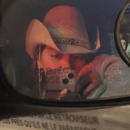Social media has quickly become the leading method to obtain beauty tips and information on trends and it makes sense. Every few days there seems to be a new “run, don’t walk” item that influencers insist viewers need for survival. While a lot of these advertisements are incentivised and sometimes a little outlandish, they are also incredibly effective. The variety of these products is quite wide, ranging from groceries to home goods, and from clothing to technology. What also varies is the question of whether or not the viewer actually benefits from using the product in the ad.
The main culprits of this tactic, however, are the beauty and fashion industries.

This is understandable – it feels good to invest time and money into my appearance. Pinterest boards and TikTok feeds are continuously consulted to decide these purchases – which pair of boots need to be ordered, what the trending makeup product is this week, and which new hot tool will “cure” my frizzy hair.
I’ll admit, I find it difficult to avoid these marketing techniques. If I’m scrolling on Instagram and I see a new handbag design or a trendy pair of shoes, I’ll send it to my Mom in a matter of seconds – which is exactly what the beauty industry wants, with the help of social media. Spreading their advertisements around to reach as many people as possible is the main objective – to have their brand seen and purchased from. Of course, I almost never purchase these wildly expensive things when I see them in advertisements throughout the day. I am a student with a limited income, after all. However, there is a spark of excitement that I get when I imagine owning these things.
“The spark” – WHat does it mean?
That spark, which can be easier to tame for some and harder for others, is the beginning of the overconsumption issue. Whether you’re shopping on designer websites, looking for a specific piece of clothing or accessory for your collection, or your debit card is burning a hole in your pocket and you’re desperate to indulge in the thrill of retail therapy. That excitement is addictive and can lead to buying things that you don’t need.
Here’s a hypothetical: Let’s say, you’re online and see that there’s a really good deal on t-shirts from an online store that you’ve heard lots about on TikTok – you’ll feel inclined to buy it. It costs $5 – you feel proud of yourself for saving money on a cute shirt and excited about your new purchase, and maybe you forget to check the reviews. Flash forward to when it arrives – you open the package and the quality of the shirt isn’t great.
Whatever, you think to yourself, I’ll wear it a few times anyway. Lo and behold, after two wears, it starts to fall apart. You rationalise the purchase to yourself again, saying it was only $5. Later that day, you’re online again and looking for a replacement shirt. These purchases start to build up, and soon you have a closet full of random shirts that might not even be wearable anymore. Not only is it wasteful in a monetary sense, the waste of materials and unethical sourcing of these pieces of clothing are main contributors to the global Climate Crisis.
Field research
While I know where I stand on this issue, I was curious as to what my friends thought. To gain more insight, I asked my similarly-aged peers some questions about their experiences and opinions on this matter by creating a Google Form with a list of questions:
- Have you ever purchased an item solely due to an online opinion or an engaging advertisement?
- What did the advertisement contain? What was it trying to sell?
- Where did you see the advertisement?
- Did the product live up to its expectations? Was it as good/functional as the advertisement described?
- What are your thoughts on social media advertisements/brand deals, specifically the “run, don’t walk” product reviews?
The responses yielded a variety of opinions, with many of the participants stating that they had purchased items because of an online advertisement or product review. Some had remarks on the reliability of these advertisements – that the quality of certain items were different than how they were advertised, but that the ads had done their job in engaging the viewer regardless. There were points made on the instant gratification (i.e, “the spark”) that online shopping often garners, and how society has normalised purchasing things that are of lower quality simply to feel that gratification, despite the widespread financial issues that many people our age are suffering from.
I gained permission to share a quote from one of the participants in my study.
“Overconsumption is an issue all throughout society, not just within the fashion and beauty industries. The wastefulness of these industries is a symptom of a larger issue.” -Anonymous, 09/17/2024.
closing thoughts
Overconsumption is a pressing issue throughout modern society, specifically in the beauty and fashion industries. With rapidly changing trends and less-than-ethical material sourcing, major amounts of waste are created. While it is not totally to blame, social media and the marketing tactics used on different platforms are a major piece of the overconsumption/over-shopping puzzle.





